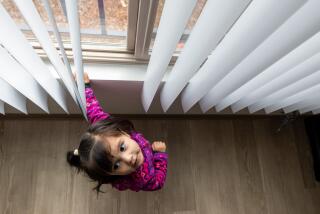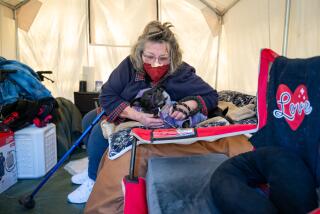A cabin village for homeless moms is coming to San Diego County
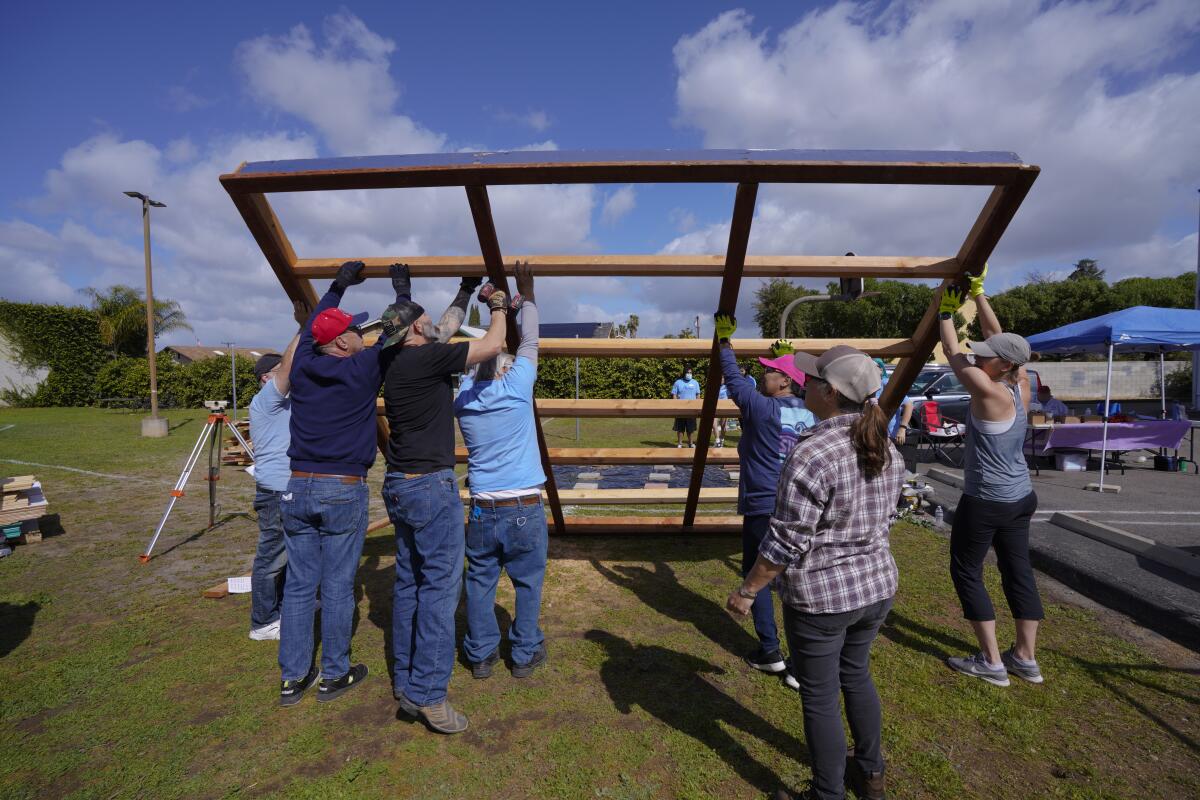
- Share via
EL CAJON, Calif. — A small cluster of cabins that will serve as a temporary home for young mothers is under construction in eastern San Diego County, and the little village someday could serve as a model for other communities seeking alternatives to homeless shelters.
“We’ve been working so hard for so many years, and now we’re here,” said Lisa Kogan, treasurer of Amikas, a nonprofit that has organized the construction next to Meridian Baptist Church in El Cajon. “And we’re going to do it.”
Amikas formed in 2009 with a mission of housing women, children and female veterans, and in the last five years it has advocated for using cabins to provide a safe and secure shelter for homeless people who otherwise may be living on sidewalks and in canyons.
The group constructed cabins at various local sites over the years as demonstration projects, but it never got a buy-in from civic leaders or found a property for its project.
Then two years ago, Steve Goble brought the idea before his fellow El Cajon City Council members after seeing a demonstration cabin Amikas had built at Meridian Baptist Church a year earlier. Council members in August 2020 unanimously approved a pilot program through December 2023 that would add five more cabins, plus one for security.
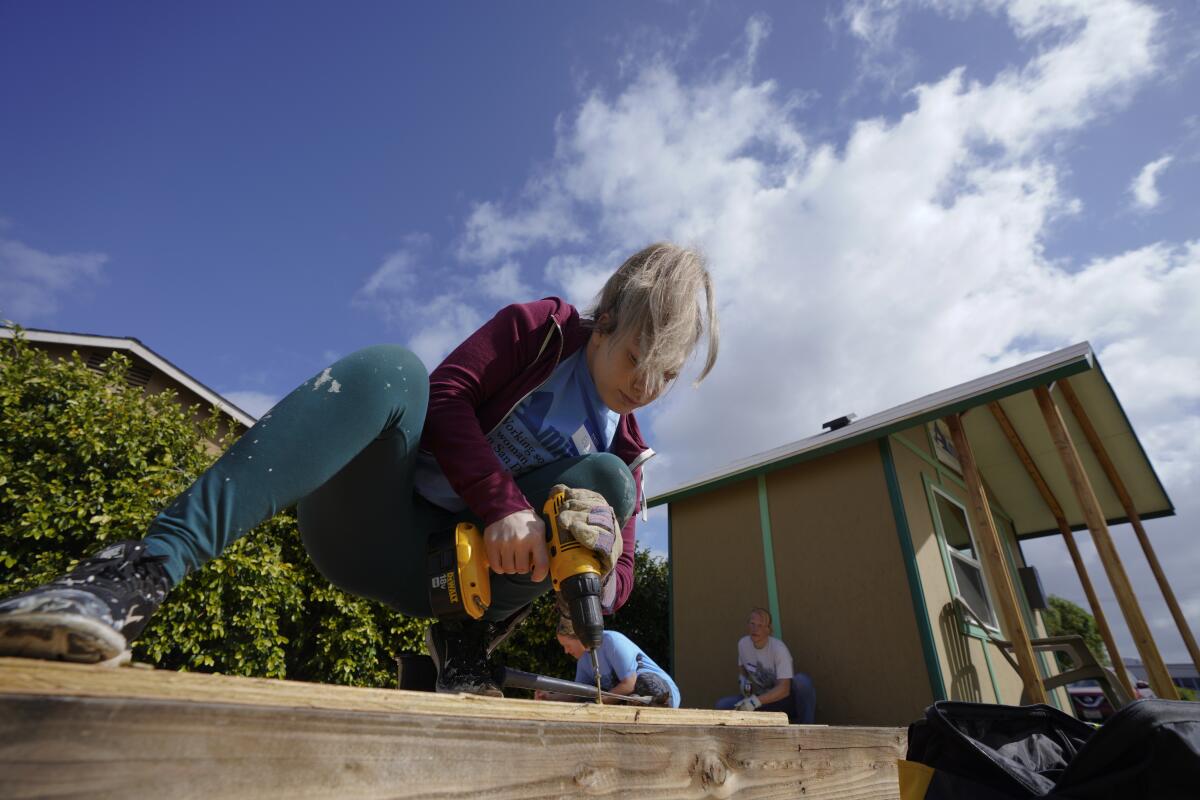
Amikas received its building permit in January and began work at the site last month. Volunteers will be on the property each Saturday, with a goal of completing all five in April.
Home Start, a nonprofit that provides housing and programs for young mothers and pregnant women who are facing homelessness, will refer clients to stay in the cabins. The city agreement asks clients to be from El Cajon and to stay in the cabins just 90 days.
Though the first people to use the cabins will be young mothers, the village could serve as a model to serve a large population of homeless people.
Outreach workers commonly find that people living in canyons and sidewalk encampments routinely turn down shelters for a variety of reasons, and homeless advocates have called on civic leaders to be open to alternatives such as safe campgrounds and cabins.
“This could be a model for many, many places in San Diego County,” Goble said. “Not everyone can function well in a tent with 200 other people in bunk beds. This partnership among the city of El Cajon, Meridian Baptist Church, Amikas and Home Start Inc. provides another solution, something needed because the reasons for homelessness vary as well.”
Amikas President Shanna Welsh-Levin agreed that cabins could be a way to get more homeless people off the street and into a safer environment.
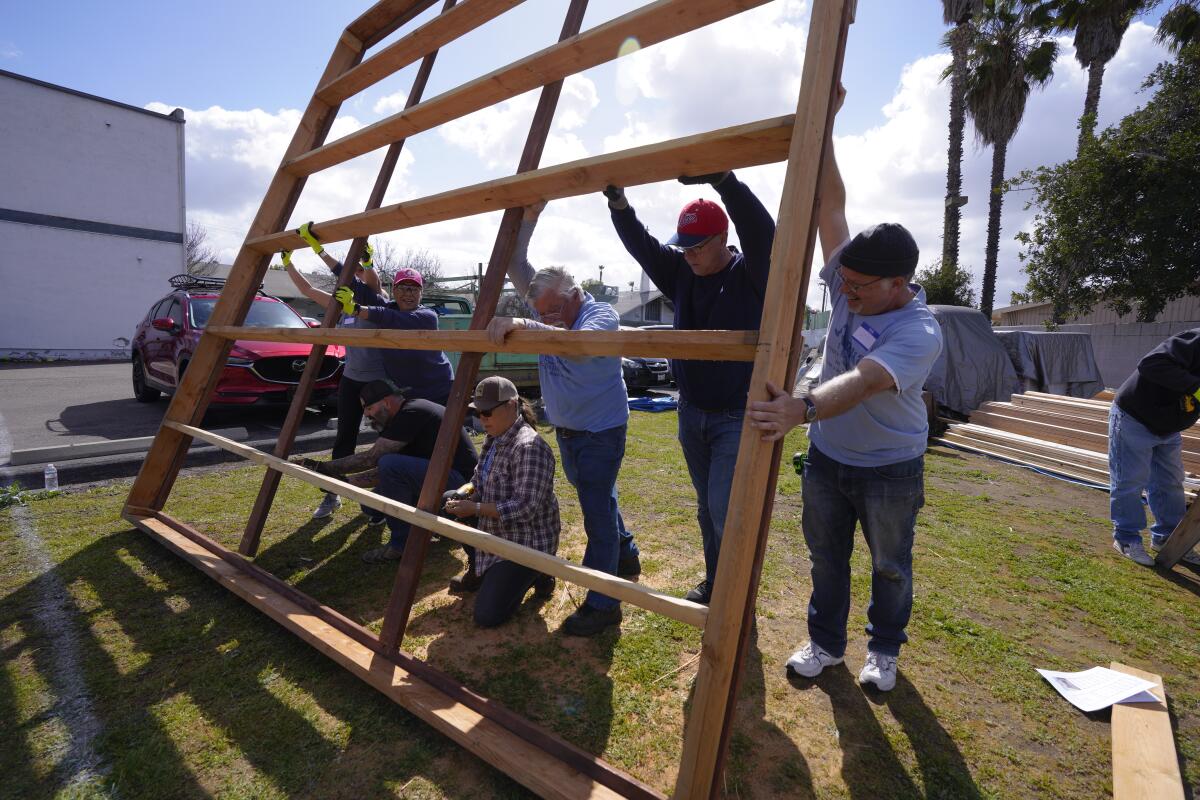
“Cabins provide more autonomy and privacy than shelters,” she said. “It’s very different from a shelter situation. There are certainly populations that could benefit from these, particularly women with children.”
The cabins are 12 feet by 12 feet with a porch and 96 square feet of living space. Cabins will have electricity but no plumbing.
Kogan said the cost of each cabin kit was about $4,000 two years ago, but the escalating price of lumber during the pandemic has added $2,000.
The Rev. Rolland Slade of Meridian Baptist Church is an Amikas board member and said he originally contacted the group to offer a site.
“We were harvesting tumbleweeds there,” he said about the vacant land next to his church.
Slade said he encouraged Amikas to build a cabin on the property so City Council members could have an idea of what could be accomplished.
“I said, ‘Let’s do it the right way and go through all the processes we need to go through, the permits, the zoning checks, and do this right with the city’s buy-in,’” he said.
Having gone through the city approval process, Slade said he can help other faith-based organizations that may want to offer their property for another Amikas village.
Kogan credited the city with helping them along the process, and said the two years that passed since the project was approved was not because of roadblocks by the city.
“We don’t know what we don’t know,” Kogan said. “We thought we needed this. We thought we needed that. We made it a little bit longer, and that was on us, not the city.”
More to Read
Sign up for Essential California
The most important California stories and recommendations in your inbox every morning.
You may occasionally receive promotional content from the Los Angeles Times.

